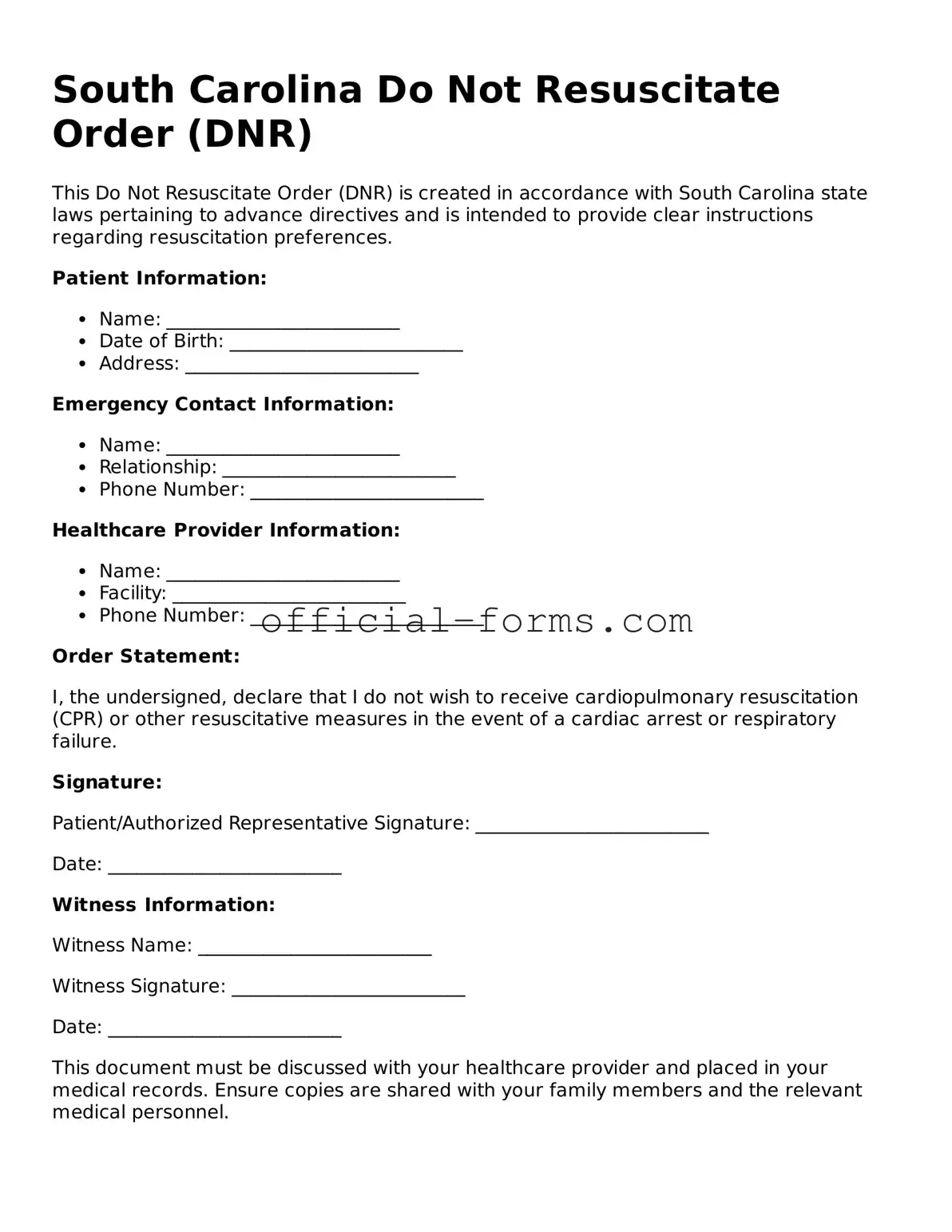Official South Carolina Do Not Resuscitate Order Document
A Do Not Resuscitate (DNR) Order form in South Carolina is a legal document that allows individuals to express their wishes regarding resuscitation efforts in the event of a medical emergency. This form provides clarity for healthcare providers and loved ones, ensuring that a person's preferences are honored during critical moments. Understanding the implications and procedures surrounding the DNR Order can empower individuals to make informed decisions about their medical care.
Open My Do Not Resuscitate Order Now

Official South Carolina Do Not Resuscitate Order Document
Open My Do Not Resuscitate Order Now
Don’t leave your form incomplete
Finish Do Not Resuscitate Order online quickly from start to download.
Open My Do Not Resuscitate Order Now
or
➤ PDF
